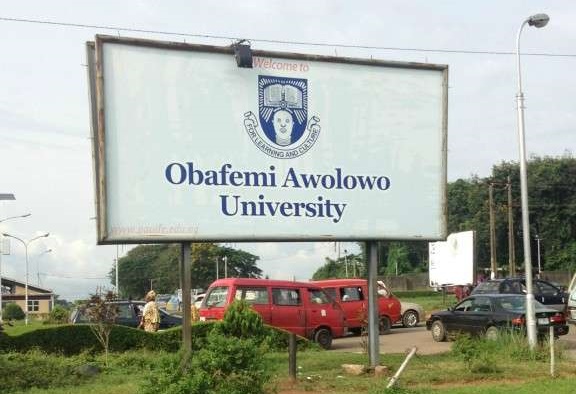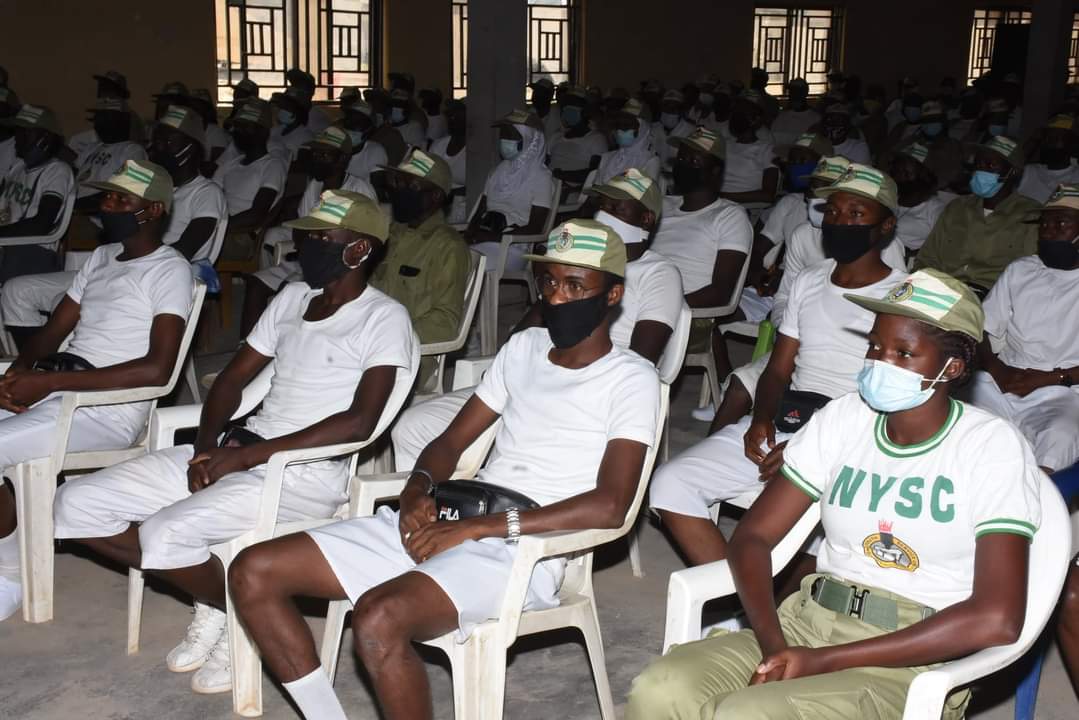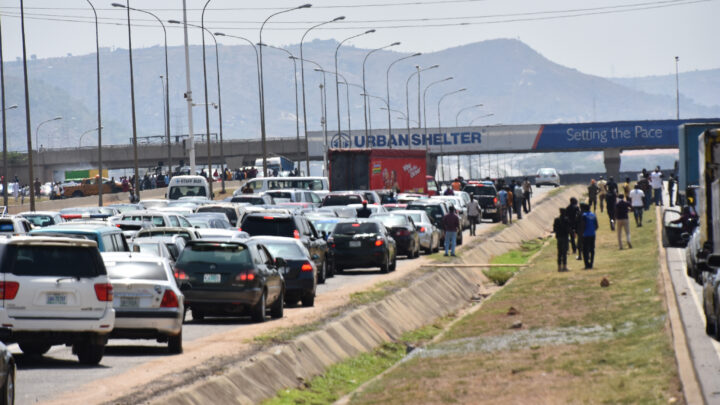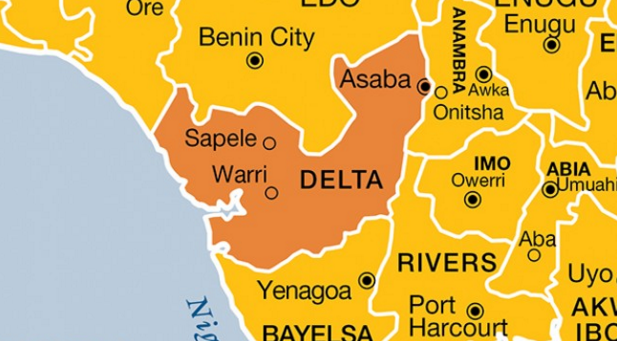OAU student’s suicide not linked to academic failure, says spokesman
BY TITILOLA BABATUNDE
As the world resumes its usual activities post lockdown, several sectors are still yet to return to their normal conditions, as do the people. For Nigeria particularly, it spells doom for its education sector, which already has been in a sorry state before the coronavirus pandemic struck. Students whose parents lost their jobs and sources of livelihood due to the pandemic are now left alone to make ends meet by all means while also keeping a focus on their primary assignment on campus. In this report, the reporter highlights the challenges students in Obafemi Awolowo Univerisity, Ile-Ife, Osun state are facing as they are torn between financial commitments and maintaining good grades.
INCREASING CASES
According to the World Health Organization, on August 25, 2021, there are 213,050,725 confirmed cases and 4,448,352 deaths recorded. Worldometer updated a total number of 214,820,086 confirmed cases and 4,477,539 deaths on August 26, 2021. Statistics obtained from the Nigerian Center for Disease Control (NCDC) as of August 26, 2021, show 188,880 confirmed cases and 2,288 total deaths.
Advertisement
VIRTUAL RESUMPTION
After the committee of Deans in Obafemi Awolowo University (OAU) met on January 12, 2021, recommendations were sent to the Senate arm of the school for consideration. Part of the recommendations had to do with virtual resumption, where students would receive lectures online while those whose courses require practicals would resume physically in batches. As a result, the academic session resumed on February 8, and students returned to their academic state of mind after over a year break with mixed feelings.
Akinkunmi Oyindasola, a part 5 student of the Faculty of Law, spoke with the reporter on her academic experience after a long period of a break due to the lockdown. “It was really a terrible experience, to begin with. I was already exposed to the world of making my own money poco a poco. So resuming back to school after a long while and balancing the equation between catering for my needs and reading for tests and exams was not easy at all.”
Advertisement
Micheal, a Chemical Engineering student, believes “most students already graduated in their minds and the zeal has diminished” as far as studying is concerned. Esuola Oluseyi, another engineering student, however, told the reporter he managed to keep his “mind sharp during the lockdown through occasional study sessions so as not to forget the feel of the school environment.”
For Eniola, an English language student, “At first, it was almost like we didn’t resume because teachings were still limited to online classes, except for tests and exams that were conducted physically. In this current semester, I find school activities a bit stressful, probably because I’m still used to receiving lectures from the comfort of my bed.”
There is not much to say about results for now as the last semester’s papers are still under grading. However, a dig into the expectations of many students would point to the direction that they already took their minds off education. During the lockdown, students were engaged in activities and petty businesses to generate income for themselves. Freelancing, forex trading, and in some cases, illegal businesses make the top list of engagements of most students. As a result, students whose minds have been filled with ideas on making money had to struggle with academic reawakening.
IT GETS WORSE
Advertisement
Coming back alive to academic tussle after a year break is one thing. Keeping up with online classes is another. The pandemic dealt its blows on many businesses and job owners. While traders had to close their shops, some were laid off from work. Michael must have had the worst experience. “I am an orphan, and things got really bad, and it affected me so much because I was on my own. I even got tempted to get involved with illegal kinds of stuff, but thanks to God for the strength to push through.” When asked what it is like to combine academics with taking care of himself, he simply said, “I’m an orphan. And it’s a very hard combination. It affects academic performance. Thinking about how to eat, buy materials, and cater for financial needs can cause depression on its own.” There is no guessing how many orphan students would share Michael’s fate.
Not many students were able to sustain themselves with virtual classes as lectures consumed more data than imagined. OAU management opted for Google Classroom and Google Meet for the online lectures. Meet has an average bandwidth of 3.2Mbps inbound and 1.8Mbps outbound per participant, translating to a total consumption of about 2.25GB per hour in high quality if all participants use their cameras. Since students usually have their videos turned off, an average class consumes between 700MB and 1.5GB, depending on how long the student stays online and the class duration. An average OAU student has nothing less than four classes to attend. These were good times for data providers to feed off on students.
“It was terrible. It affected my performance. The Google classroom stuff is not working for me. Although I tried to attend all the classes, it was really not easy to handle. Online classes have room for a lot of materials I could not finish,” Ajibade Abdullah, a part 3 student of Linguistics and African Languages department, told the reporter on his experience with virtual classes.
TAMING SCHOOL AND WORK
Advertisement
The second semester is a bit relieving. The school management allowed physical resumption for some courses, depending on the population of students offering the courses. In addition, the faculty of Law still offers some of its courses online through Google Meet. The mixed learning initiative gives students the thrills of being in school, but meeting financial needs and fulfilling academic obligations may not come as joyful.
Blessing, an English language student, told the reporter her experience during the lockdown that now shapes her survival spirit in the school. “Dad didn’t get contracts for months, and mom couldn’t go to her shop. We had to think of a way to get through the lockdown. As a freelancer, coping with academics has been really stressful for me. I started freelancing during the lockdown. By the time we resumed, I had to work on balancing the two, and it wasn’t easy.”
Advertisement
Relying on their parents is no longer a common idea as students are trying to keep up by themselves. They did it during the lockdown and must have enjoyed the blossoming independence. But what does that spell for their academic performance?
While speaking with Eniola about coping financially as a student, she said, “For students in middle-class families, you can’t survive on the pocket money you get from home. You would have spent all the money on transportation and feeding within a week. Getting a side hustle and having as many streams of income as possible is the only thing that can bail you out of financial stress and frustration.” When asked about the implication of having a side hustle, she believes an adverse effect is inevitable. “A broke student cannot be mentally stable for academic activities. For instance, a hungry student will not understand whatever is being taught in the class. As a matter of fact, you need to eat good food to feed your brain the necessary nutrients it needs for sustenance.”
Advertisement
Finances and academics have become a major focus of many students. Balancing both might be a daunting task, but it would be much worse if one overshadows the other. While students are not ready to jeopardize their primary academic assignment, leaving out a sustenance system might prove fatal, as described by Eniola. Blessing also shares the same view, “There is no doubt that financial troubles will affect a student’s academic performance. I believe you can only concentrate more on your academics when you have your basic needs taken care of. Financial trouble is a big pressure on any student.”
While some students see handling both as a chance to stretch their sense of responsibility, there is no doubt side hustles and financial commitments will choke academic interest and performance. It’s not bad if the student can balance both without being overly concerned with hitting As and first class. But it will be worse and academically damning if the student cannot meet their financial needs.
Advertisement
OAU IS FOR SPORTS AND STRUGGLE
Studentship in the Obafemi Awolowo University community is known by many to be a weight loss program. The way the school handles its academic program continues to create an impression of a hard-to-survive environment. A line in the school’s famous anthem, “for learning and culture, sports and struggle…” says much about how students’ mental and physical conditions tell the tale at the end of every semester. Oyin believes “OAU is stressing students out. The way OAU students read and still fail compared to other schools where students party and have their social life on a high pedestal and still pass is a bitter pill to swallow.” Marvelous, another student in the department of Linguistics, says, “It’s tough really. I think it’s because the lecturers are still glued to old teaching methods. They make everything hard.”
THE FEARS ARE REAL
The reporter spoke with Professor A. Adedeji, the Dean of the Faculty of Law, in his office about the growing interest of students to become financially independent. “It is not all those students that are involved in the pursuit of money that are doing it because they don’t really have sufficient funding from home. Many are just doing it to explore other possibilities. But due to the pandemic, it’s a part of the realities of the present day, even in Nigerian higher institutions that parents are stressed financially. And if the amount of money parents give their students while leaving home is not sufficient to sustain them in school, one cannot be too surprised seeing that they are devising some other strategies to enable them to cope. To an extent, we can say it is commendable.”
Mr. Babatunde Oyatokun, the Chief Security Officer of the University, spoke on students sharing their time and focus between money-making activities and studying. He recognized the necessity of seeking financial sustenance while also stressing the importance of making good grades as a student. “Both are very important, especially if the student has to sponsor himself.” He further stressed the need for students to balance work and school to avoid falling short of either. According to him, “Students must understand their strengths and consciously work on utilizing it to their benefit. For instance, a student who reads and understands only in the night can schedule their extra work in the day so they can make money in the day and read in the night.”
The Law professor voiced his concerns over the work-learn habit of students as he believes the ride is never too smooth. “There is no way students will combine learning and working together, and they will be able to give maximum attention to their studies. And the implication would be poor performance or performance below the level of their actual capacity. The downward side of it is that they might not be performing as they ought to. They may be lost in focus. But I always encourage them to give maximum attention to their studies because they are here to study. So they need to still try as much as possible to a good percentage of their time to their studies.”
In a call with Mr. Abiodun Olanrewaju, the university’s Public Relations Officer, he advised students caught between learning and working to make ends meet to report their academic progress to their part advisers. “The financial situation of students is an individual thing. This is a central university administration, so the part advisers have direct dealings with the students. Those who are having one challenge or the other may see their part advisers, particularly those who want to cross from one department to another because of poor performance. Then they will tell their part advisers what engineered their poor performance.”
Currently, there are no confirmed cases of students who had to drop out of school due to financial constraints.
EVOLVING WORLD
Education is becoming one of and not only the solution to poverty. Students who are yet to complete their studies have been engaged in legitimate businesses to cater for themselves. This is a reality that Nigeria is currently embracing. Like other countries, education is not the only way but one of many ways. Students are starting to realize building a life on their own is necessary to survive. Not many are ready to graduate only to join the unemployment force. On Monday, March 15, 2021, the National Bureau of Statistics reported that Nigeria’s unemployment rate has risen to 33.3 percent, meaning about 23.2 million citizens are not working.
While it is necessary for students to survive outside the support of their parents, one can only imagine how stressful fulfilling financial needs and maintaining good grades can be. It may be challenging, but it can be a more harrowing experience in an academic environment like OAU.
Add a comment






